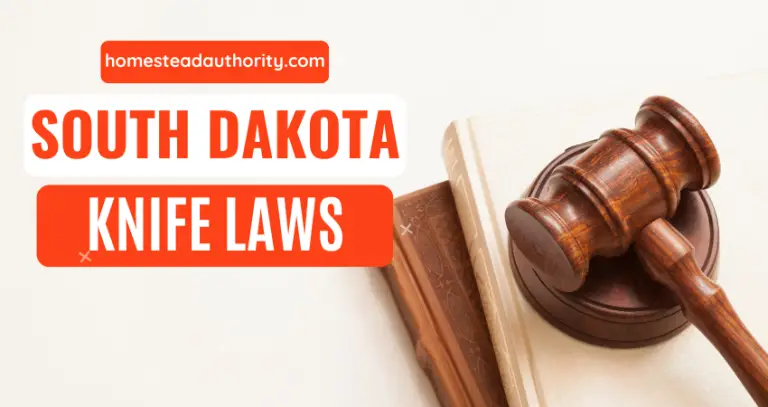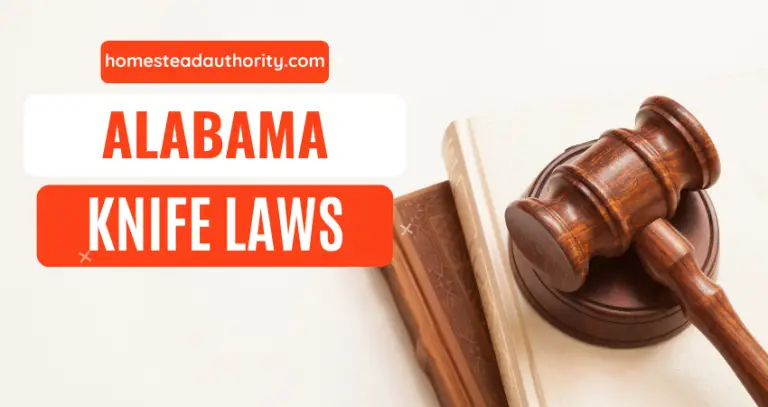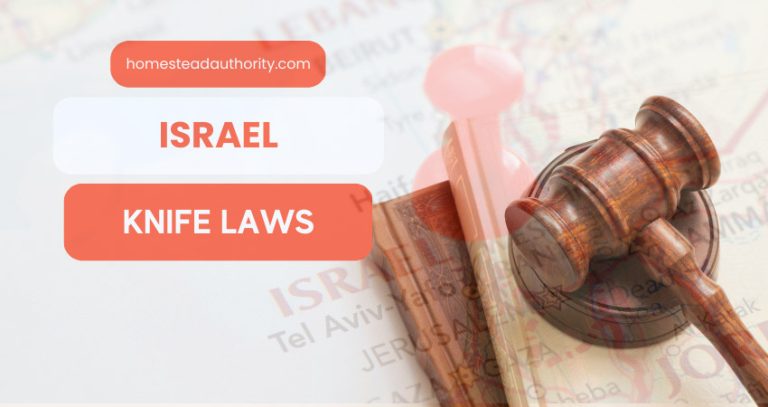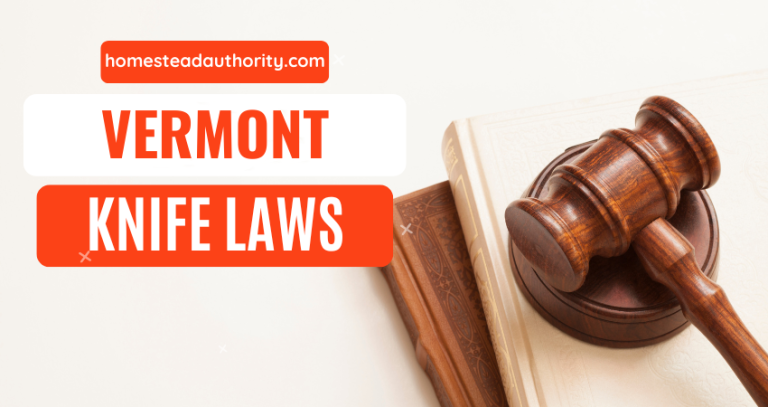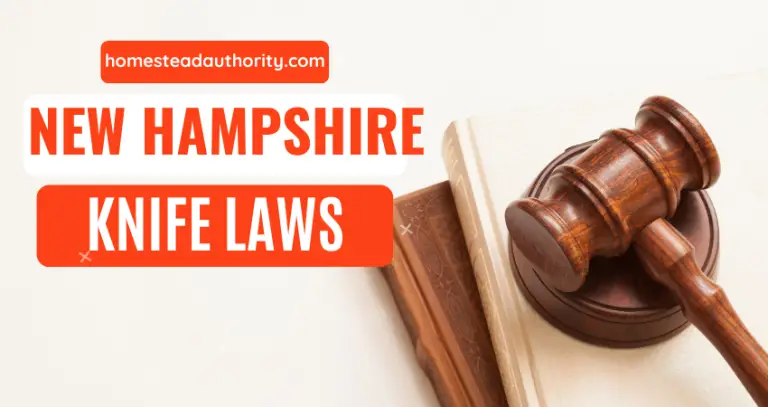Know Your Rights: A Summary of Colorado’s Knife Laws
Knife laws in the USA, especially in Colorado, are emollient and tricky. Colorado has a fairly restrictive overview of knives.
They’re not as liberal as Alaska and not as limited as California.
By being constrictive with knife laws, Colorado has tried to decrease knife-related crimes in the state. However, people still need to carry knives for various purposes.
So how do you distinguish which knife is legal to carry and which isn’t? What to do if your profession requires you to carry a knife?
What is the safe procedure for carrying a knife in Colorado?
In this article, we’re going to discuss everything about the knife laws in Colorado, as well as answer all questions you may have about knife laws in Colorado, USA.
Keep reading if you’d like to learn more.
Quick Legal Facts
Here are some small legal facts about the Colorado knife laws. Brush up your memory by taking a look.
Illegal Knives
Ballistic knives, Blackjacks.
Concealed Carry
Any knife with a blade longer than 3.5 inches is considered illegal for conceal carry.
School Ground
All kinds of knives (conceal carry and open) are considered illegal within school grounds, with a few exceptions.
This includes pre-school, Kindergarten, middle school, high school, graduate school, and post-graduate schools.
Statewide Preemption
Limited.
Critical Dimension
3.5 inches for conceal carry, none for open carry.
List Of Illegal Knives In Colorado
Ballistic knives and Blackjacks are illegal to own and carry in Colorado.
According to Colorado Law 18-12-102, carrying a ballistic knife is a class 5 felony in Colorado.
Whether you carry it in a concealed fashion or an open manner is punishable by law.
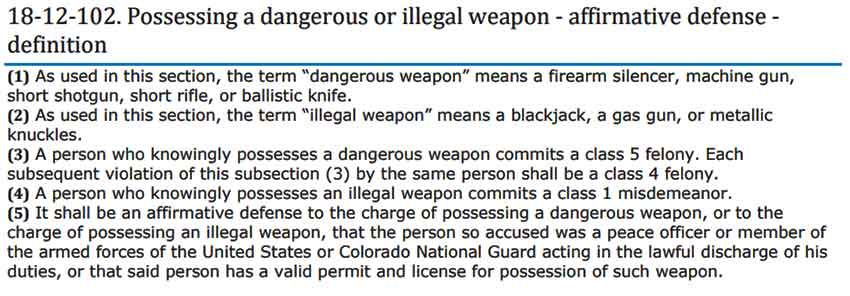
What Is A Ballistic Knife?
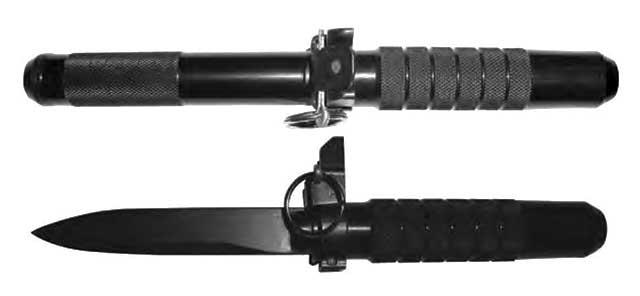
A ballistic knife usually has a blade that can be forcefully ejected from the bolster with a spring-loaded device or explosive material inside the handle.
These knives are considered deadly weapons and can be used to injure anyone from a distance. Blackjacks or jack knives are also illegal in Colorado.
Even though the state took off Switchblades and Gravity knives from its list of illegal knives in 2017, these blades are still prohibited by certain local governments, such as Denver.
Colorado remains quite lenient when it comes to knife laws. Apart from Ballistic knives and Blackjacks, it is legal to carry almost any knives in Colorado.
Illegality Based On Areas
According to CRS 18-12-105.5, it is illegal to carry all kinds of knives, concealed or open, inside a public or private school premise in Colorado.
This includes an elementary school, middle school, junior high school, high school, vocational school, college, university, or seminary.

It’s not technically illegal to openly carry legal knives in public buildings or courthouses in Colorado.
However, carrying an illegal knife, concealing a knife longer than 3.5 inches, or carrying a knife with an active intent to injure someone inside a public building, gathering, or courthouse is punishable by law.
It’s also illegal to carry a knife inside military bases in Colorado unless the person carrying the knife is an active member of the military.
Illegality Based On Local Governments
3 kinds of local governments exist in Colorado. They are – counties, municipalities (cities and towns), and special districts.
Most of these local governments don’t have any laws regarding knives that supersede the state’s knife laws.
Local governments also have a jurisdictional balance with the state government.
The local governments listed below ban the deliberate carrying and ownership of Switchblades and Gravity knives, as well as banning Ballistic knives and Blackjacks, which are banned statewide.
All these counties and cities are situated inside the state of Colorado.
- Aurora City
- Boulder County
- Denver County
- Lakewood City
Local ordinances regarding knives are very stringent in these areas.
Unless you’re traveling in a private vehicle or are a member of a law enforcement agency, carrying any of the prohibited knives will swiftly land you in jail.
Illegality Based On Concealment
Unless you have a CCWP (Conceal Carry Weapon Permit), it is illegal to conceal carry any knife in Colorado if the blade exceeds the length of 3.5 inches.
Conceal carry usually means –
- Carrying in a visually inaccessible way
- Carrying inside one’s garment/clothing
- Carrying something in a misleading fashion
Even if you’re carrying a legal knife on your body, if the blade is longer than 3.5 inches, you cannot conceal carry it in public.
Examples of concealed carry are –
- Carrying in a bag or purse
- Carrying in a pocket
- Carrying on a wristband
- Carrying inside an apparel
However, this law doesn’t apply to fishing/hunting knives.
Illegality Based On Possession And Trade
Colorado doesn’t have a specific law on selling, manufacturing, importing, or trading knives.
Any knife that is legal to own is legal to sell. However, if the possession of a knife is illegal, then the sale/distribution/manufacturing/trading of such a knife becomes illegal automatically.
Breaking this law is considered possession of an illegal item.
So, selling/manufacturing Ballistic knives and Blackjacks are illegal by default.
Failure to comply with this law is considered a class 5 felony and a class 4 felony if repeated.
Penalties And Punishment For Carrying Illegal Knives
Stringent penalties and punishments exist in Colorado for the possession of illegal knives. Such as –
- Deliberate conceal carrying of any knife that has a blade longer than 3.5 inches in any public space in Colorado is a class 1 misdemeanor. It’s punishable by up to 364 days in prison and/or a fine of up to 1000 dollars.
- Deliberately owning or carrying a ballistic knife is a class 5 felony. The punishment for this felony is up to 1 – 3 years in prison (with a minimum of 2 years parole), and up to 1000 – 100,000 dollars in penalties. A repeated offense is considered a class 4 felony and is punishable by 2 – 6 years in prison (with 3 years parole) and a fine of up to 2000 – 500,000 dollars.
- Deliberate possession of a Blackjack/ Jackknife is a class 1 misdemeanor and is punishable by 6 to 18 months in prison and a fine of 500 to 5000 dollars.
- Bringing a knife into school grounds is considered a Colorado class 6 felony. It can be punishable by 1 to 18 years in prison (with 1-year mandatory parole) and a fine of up to 1000 to 100,000 dollars.
List Of Legal Knives
You can own and carry almost any knife in Colorado, as long as it’s not a Ballistic knife or a concealed knife longer than 3.5 inches.
These knives listed below are legal to own in Colorado.
- Dirks
- Daggers
- Bowie knives
- Push knives
- Stilettoes
- Belt knives
- Pen knives
- Lipstick knives
- Cane knives
- Kitchen knives
- Hunting knives
- Fishing knives
- Gravity knives and Switchblades (banned in some places)
- Balisongs
- Butterfly knives
Point to be noted; all these knives have to be carried openly.
The legal length of knives in Colorado is 3.5 inches, so the blade cannot be any longer if you want to carry one in a concealed fashion.
Significance Behind The 3.5-inch Blade Length
In 2001, in the case between A.P.E and the people, the defendant was found with a push knife that was shorter than 3.5 inches.
The police accused him of unlawfully carrying a concealed weapon.
However, the prosecution failed to convince the jury that he was using the knife as a weapon.
Eventually, he was free of all charge, and the legal blade length of a concealed weapon was decided.
Exceptions In The Knife Law Of Colorado
There are a few exceptions in the knife laws of Colorado. For example, carrying a knife on school grounds is illegal.
However, you may carry a knife on school grounds only if –
- The knife is kept inside a vehicle on the school premise (only applicable for schools higher than high school)
- The knife is kept in a private automobile for self-defense
- You’re a school resource officer
- The knife is kept for an approved educational program
In the same way, concealing a fishing or hunting knife that is longer than 3.5 inches is legal.
You can also conceal carry a 3.5+ inch knife if you’re an active member of a law enforcement agency. However, you do need a CCWP for this.
Another exception to the blade length law is that it’s legal to conceal and carry a knife longer than 3.5 inches if you are –
- At your own home
- At the place of work or business
- Driving a car while keeping the knife for self-protection
Conclusion
Colorado is one of the less convenient states when it comes to knives. Their severity toward knife law goes to show their attempt to prevent knife-related crimes.
Because of this, it is very easy to violate their knife laws. You can own almost any knife in Colorado as long as it’s not a ballistic knife.
So practice careful bearing of knives. Try not to break any laws accidentally.
Thank for reading!

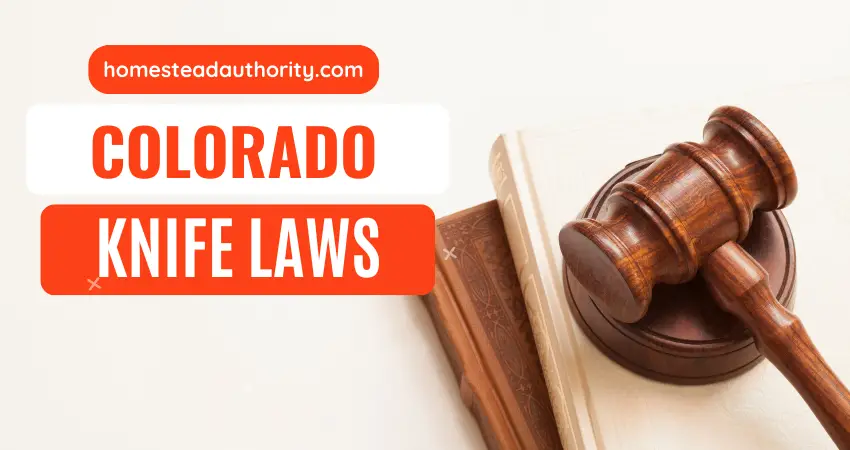
![Colorado knife laws -- What are you allowed to carry? [2022 UPDATES IN DESCRIPTION]](https://homesteadauthority.com/wp-content/cache/flying-press/YNs29pG8qR4-hqdefault.jpg)
